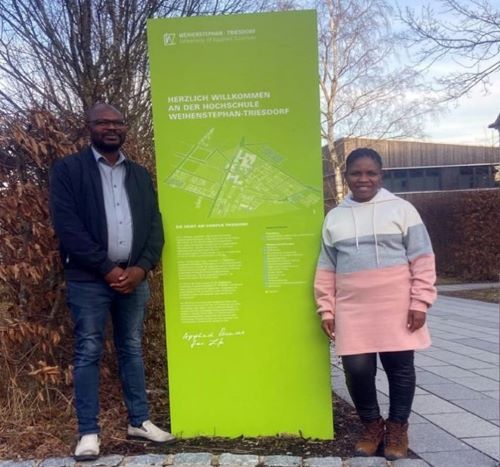One of the Tshwane University of Technology’s leading Faculties, the Faculty of Science, forms part of progressive project, which commenced in 2023, that will benefit agricultural students and small-scale farmers in Sub-Saharan Africa.
Together with 13 other international partner institutions from Africa (South Africa and Senegal) and Europe (Germany, Italy, France and Serbia), TUT collaborates in the European Union-funded Managing (South) Africa and Senegal Sustainability Targets through Economic-diversification of Rural-areas (MASSTER) project that taps into Sub-Saharan Africa Higher Education Institutions’ potential to collaborate internationally and build capacity for provision of inclusive, integrative and reflective educational practices.
These practices aim to increase quality and responsiveness for socio-economic recovery and resilience towards core developmental trends, including food security and migration and the connected issues of rising economic and human capital development inequalities.
According to Prof Grany Senyolo, Associate Professor in Agricultural Economics at TUT’s Department of Crop Sciences, the main goal of the MASSTER project is to explore avenues of support provision by Higher Education Institutions to agricultural students and small-scale farmers in South Africa and Senegal. This approach seeks to address agricultural/rural development and migration/mobility nexus through a holistic societal engagement framework. TUT agricultural students, in turn, will be trained and supported to address the needs of local farmers, perform income generation activities on their farms as well as address needs of extension services to provide relevant training (with income-generation potential) to farmers and address the needs of municipalities to better manage economic migrations.
Early in October 2024, four TUT staff members from the Faculty of Science, Profs Bohani Mtileni, Grany Senyolo, Tshifhiwa Nangammbi and Dr Tlangelani Nghondzweni, attended a seminar at the Gaston Berger University (UGB) in Saint-Louis, Senegal where professionals from various partner universities in South Africa, Senegal, Germany, Italy and Serbia discussed key findings on training needs assessment between the two African countries (South Africa and Senegal). The identified needs formed the basis of the workshop discussions, including: i) Need to address gender differences/specificities; ii) Need to support farm expansion and income-generating activities; iii) Need to support diversification; iv) Need to raise governmental awareness and cooperation; and v) Need to promote collaboration between farmers and students.
The workshop equipped participants with skills to assess training needs and design country specific non-degree training courses for small-scale farmers and agricultural students, in the following areas: i) Farm management and income generation; ii) Farm management and climate change resilience; iii) Agritourism; and iv) Food value chains.
These skills are a step in the right direction to develop participants to deliver relevant content for the project. The seminar provided ample opportunities for networking with fellow professionals, allowing participants to exchange ideas, build connections and explore potential collaborations.
Gearing up for the training of agricultural students and small-scale farmers

Profs Bohani Mtileni and Grany Senyolo at the workshop in Germany.
The seminar featured a diverse range of sessions, catering to the multifaceted needs of participants. These sessions included workshops, lectures, group discussions and practical exercises in WBMOODLE and SyGMA (EU) for project management and communication to support working in Erasmus+ projects. Attending the Capacity Building seminar was an enriching and rewarding experience. The knowledge gained, coupled with the practical skills acquired, will undoubtedly contribute to our involvement as TUT as part of the MASSTER project.
